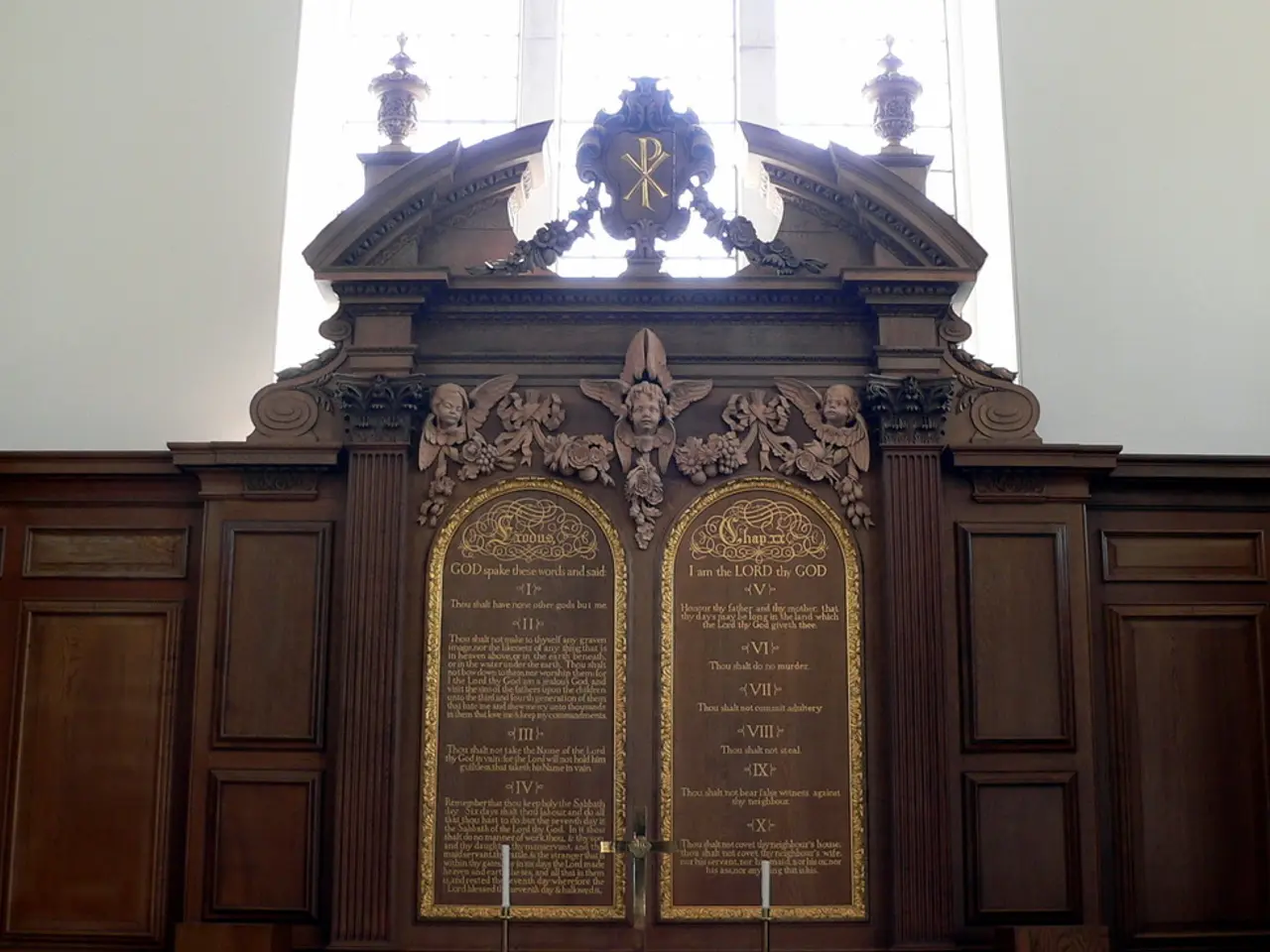Favoritism in Trump's Realm: Those Who Embrace Him Reap the Benefits
In a political landscape marked by unpredictability, the presidency of Donald Trump offered valuable lessons for leaders around the world. His foreign policy, often criticised for its erratic nature, was characterised by a unique approach that favoured those who flattered him.
One of the earliest examples of this came in April, when the UK found itself in a bilateral agreement with the Trump administration, avoiding a threatened tariff on British goods. The deal, which featured relatively mild tariffs of 10%, was a clear reward for the UK's tactful approach during negotiations.
Similarly, tech companies found themselves in a favourable position when they paid homage to Trump. Special permits for the export of microchips to China were among the rewards reaped by those who curried favour with the president.
Conversely, those who defied Trump faced severe consequences. Brazil's President, nicknamed 'Gringo' Trump, was hit with 50% tariffs for his defiance on various issues, including denying man-made climate change, increasing deforestation in the Amazon, and clashing over election legitimacy issues.
The US President's approach to foreign policy was predictable, at least in terms of rewarding flattery. This was evident in his interactions with NATO countries, where pressure eased when they flattered him. Even NATO Secretary General Mark Rutte was not immune, calling Trump 'Daddy' in a public setting.
However, Trump's fascination with the British royals, inherited from his Scottish mother, added a personal touch to his foreign policy. During a two-day 'State Visit' to the UK, he visited Windsor Castle, where he saw the grave of Queen Elizabeth II and took a carriage ride through the gardens. King Charles III hosted a military reception for Trump during his visit.
Despite ideological differences and low approval ratings, Trump did not criticise British Prime Minister Keir Starmer during his visit to the UK. In fact, Starmer had travelled to Washington in February to invite Trump to the 'State Visit,' a gesture that may have stroked Trump's ego without submitting to him.
Intriguingly, Trump had previously criticised Starmer's Labour government during the US election campaign. Yet, during their face-to-face interactions, Trump refrained from such criticism, suggesting a level of personal affection guiding his foreign policy decisions.
This nuclear agreement between Trump and Starmer is set to further solidify the relationship between the two leaders. As the world watches, the lessons from Trump's presidency continue to unfold, offering insights into the power of flattery in international diplomacy.
Read also:
- United States tariffs pose a threat to India, necessitating the recruitment of adept negotiators or strategists, similar to those who had influenced Trump's decisions.
- Weekly happenings in the German Federal Parliament (Bundestag)
- Southwest region's most popular posts, accompanied by an inquiry:
- Discussion between Putin and Trump in Alaska could potentially overshadow Ukraine's concerns








